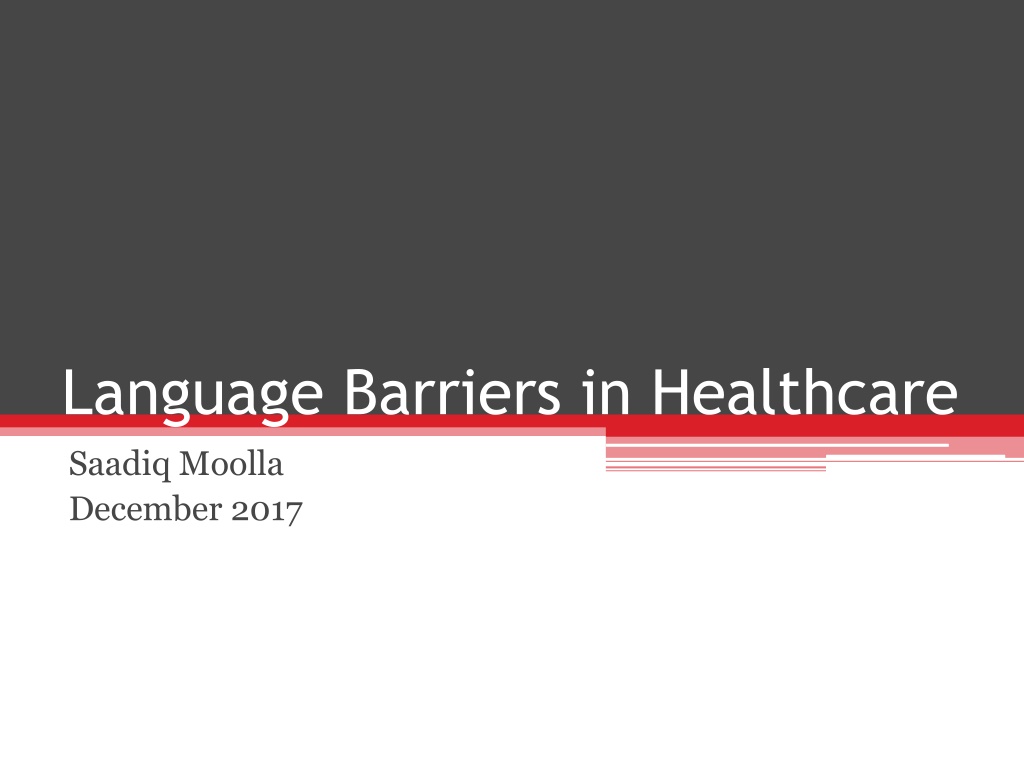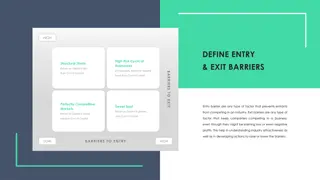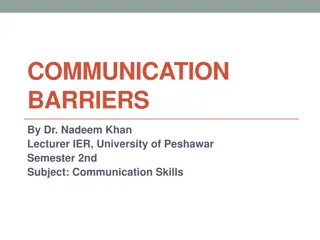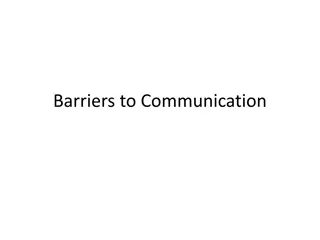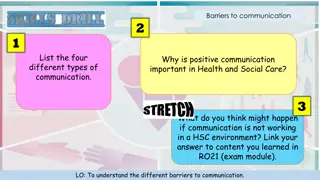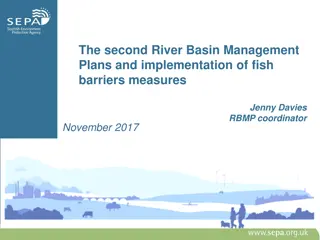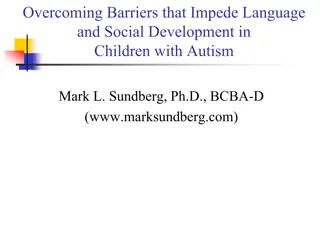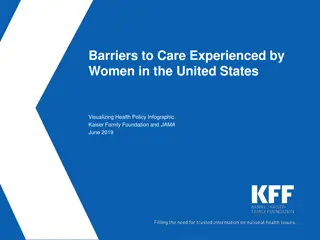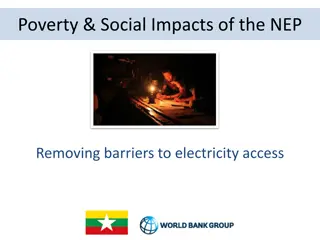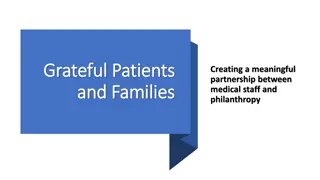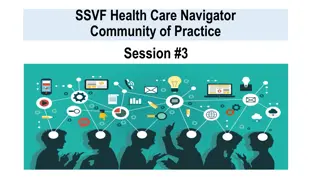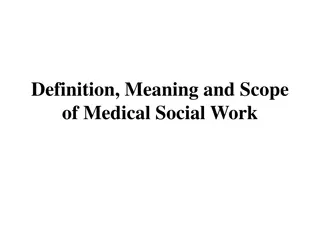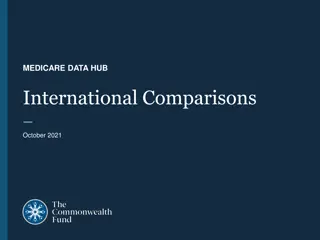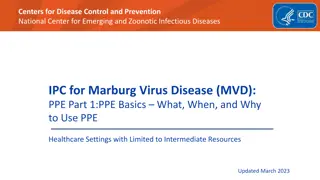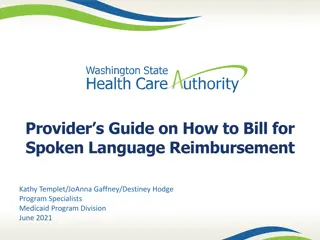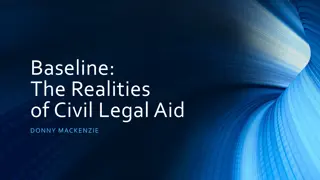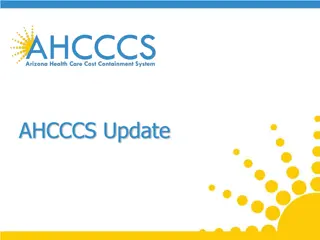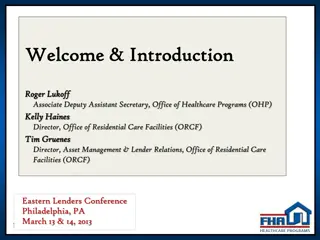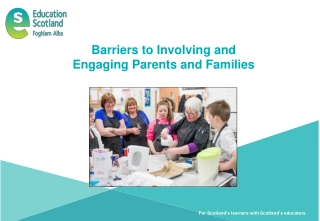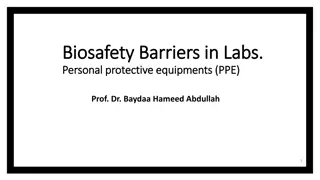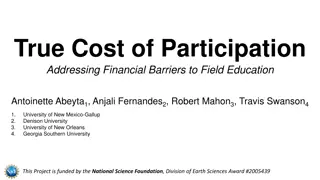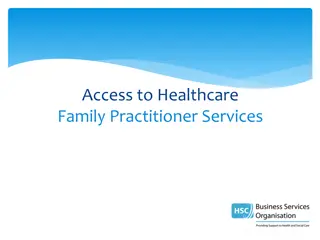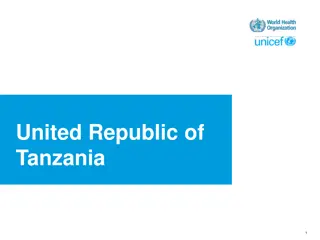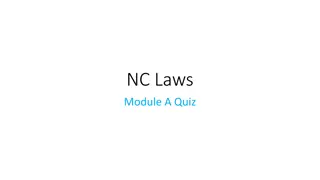Language Barriers in Healthcare: Impacts and Solutions
Language barriers in healthcare lead to challenges for both patients and doctors, affecting communication, understanding, and decision-making. Patients face difficulties in expressing themselves and understanding medical information, leading to dissatisfaction and fear. Doctors struggle to build rapport, provide accurate care, and educate patients effectively. This results in delayed diagnoses, treatment errors, and non-adherence to medical advice. Various solutions are needed to overcome these barriers and improve healthcare outcomes.
Download Presentation

Please find below an Image/Link to download the presentation.
The content on the website is provided AS IS for your information and personal use only. It may not be sold, licensed, or shared on other websites without obtaining consent from the author. Download presentation by click this link. If you encounter any issues during the download, it is possible that the publisher has removed the file from their server.
E N D
Presentation Transcript
Language Barriers in Healthcare Saadiq Moolla December 2017
The RSA and WC Context 11 Official Languages English, Afrikaans & Xhosa predominate in WC Immigrants
Healthcare Context Numerous Barriers to Healthcare Cost Transport Waiting times Supplies Other responsibilities Education Language
Healthcare Context Doctors Predominantly speak English and Afrikaans From other parts of the country From other countries/continents Time constraints Typical clinic doctor expected to see +/- 40 patients in a day Few consultations in home language 6% in one study1 1. Levin ME. Language as a barrier to care for Xhosa-speaking patients at a South African paediatric teaching hospital. S Afr Med J. 2006 Oct; 96 (10): 1076-9.
Effects of the Language Barrier Patients Have difficulty making themselves understood Have difficult understanding the doctor Have difficulty asking questions Reduced ability to participate in decision-making Implications for informed consent Are dissatisfied with the communication Are concerned about the negative effects Fear Frustration
Effects of the Language Barrier Doctor Difficulty establishing rapport, being kind empathic or approachable Wrong history Unable to give adequate health education Time Frustration Systemic Increased cost of investigation
Effects of the Language Barrier Delayed or incorrect diagnosis Reduction in patient understanding of Diagnosis Management/Treatment Following health education/promotion Using treatment incorrectly Defaulting Follow up Patients lost to the system Non-adherence to medical advice
Effects of the Language Barrier Language-intensive problems Psychosocial problems Mental Health
Current Solutions Interpreters May be Ad hoc Nurses Telephonic Professional Problems Broken telephone Time-consuming Subverts doctor-patient relationship Confidentiality, sensitivity and agendas
Current Solutions Codeswitching Language education in the medical curriculum There remains a lack of research and policy attention to the issue!
Cultural competence Direct language translation is not enough Words and ideas may not translate directly Patients have different understandings of disease to doctors Explanations need to be at the appropriate level for the patient to understand
Mobile Translate MD Saadiq Moolla December 2017
Introduction Cellphone-based Direct medical translations 5 Languages Afrikaans French Spanish Xhosa Zulu
Topics History Examination Investigation Diagnosis Medication Procedure Patient Information Other
Additional Features Audio for selected languages Links to tutorials
Challenges Pronunciation Patient responses Content
Links Android App play.google.com/store/apps/details?id=nfs.mobiletranslatemd MobileXhosa Website mobilexhosa.co.nf Facebook Page facebook.com/mobiletranslate
